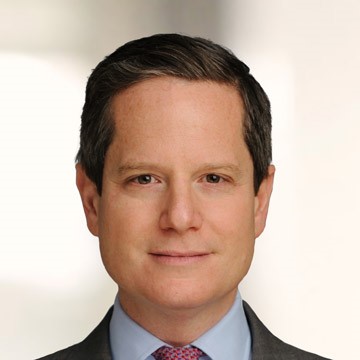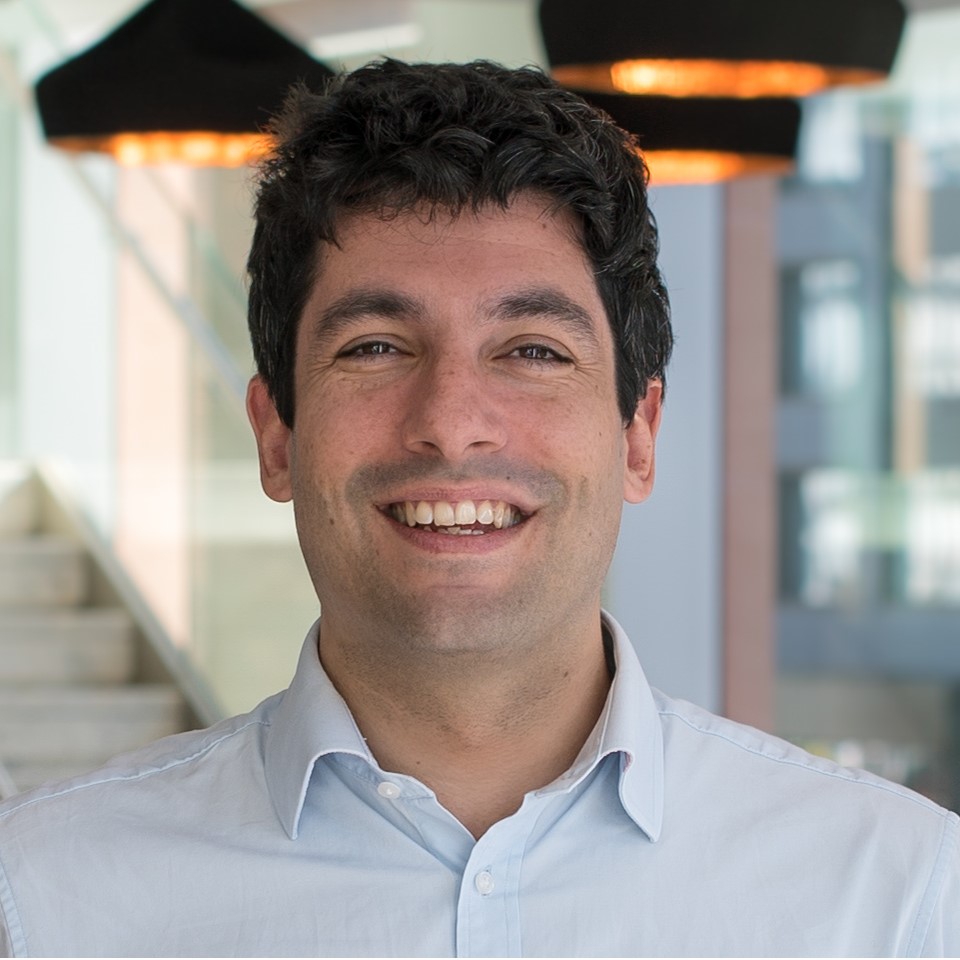The Covid-19 pandemic and global social unrest have accelerated a shift in the boundaries of acceptable public discourse, making normal, ideas that were once thought radical. In the corporate world, the assumption that shareholder returns should be maximised at any cost has been challenged, embedding sustainable investing as a leading destination for investor flows. Below, we explore the ideas behind this transformation and their consequences.
The accelerating move towards sustainable capitalism
The bottom line isn’t the top priority that it used to be. In decades past, corporate earnings calls focused on quarterly earnings per share, performance relative to past quarters, and future expectations. These numbers express the priorities of shareholder capitalism and its measures of corporate success.
While equity valuation metrics are unlikely to change, we’ve heard CEOs and CFOs demonstrate a very different focus on their earnings calls since March. They are striving to communicate different numbers, which represent their efforts to protect and support employees, customers, suppliers and communities, emphasising in some cases their direct assistance through the manufacture and supply of medicine, medical equipment and protective gear.
The Covid crisis has accelerated the adoption of sustainable capitalism, in particular on matters related to the social good, because of its challenge to society’s ability to deliver the basic physiological needs of safety and good health. The pandemic is an external threat to populations, both in biological and economic terms, generating a collective wartime-like response to defeat it, and reinforcing the need to preserve the environmental and human ecosystem on which we all rely.
This may ultimately prove to be ground-breaking. There is growing recognition in the corporate world that its existence as a system for allocating resources is based on an implicit licence granted by society, one that can only be strengthened by seeking win-win, rather than win-lose, outcomes.
It is likely that the extreme and tragic experience of the Covid pandemic has resulted in a permanent change to the mindset and attitudes toward sustainable capitalism. If the door to combining corporate purpose and the common good was open a crack before the crisis, the events of the last five months have thrown it wide open.
Mapping the transformation on the ground
We have been able to map this transformation of corporate purpose via our monthly survey of more than 140 analysts worldwide. For example, over half of the responses to the May Fidelity Analyst Survey indicated an increase in company plans to step up focus on workers, consumers and the wider community as a result of the pandemic.
Across sectors and regions, our analysts said that the health of staff has been at the forefront of managements’ minds, and companies will devote more attention to employees’ safety and wellbeing in the future. The survey also found that for some companies - as a result of the crisis - demonstrating good corporate citizenship and support for the communities in which they operate is now an essential part of building and sustaining brand equity.
One month later, our June survey found that this trend will outlast the Covid-19 outbreak in some areas. Fifteen per cent of North America analysts, a higher proportion than in Europe, said they expected the majority of social-oriented changes in the companies would be permanent.
Beyond the pandemic, a key factor has been social unrest and mass protests. A Europe consumer staples equity analyst says that “the event that could drive greater social change" is the tragic death of George Floyd in the US.
Corporate action and sustainable capitalism
"We share a sense that never before has our "One Planet. One Health” frame of action been so relevant, urgent and meaningful than today. In these unprecedented circumstances, it drives the way our teams engage daily with their farmers and suppliers, customers and consumers, healthcare professionals and patients, but also with their business partners, governments and health authorities.” - Emmanuel Faber, Chairman and CEO of Danone, Q1 2020 earnings call
“Despite the progress the United States has made, Black Americans are too often denied basic privileges that others take for granted. I am not talking about the privileges of wealth, education or job opportunities. I'm talking about fundamental human and civil rights and the dignity and respect that comes with them.” - Mark Mason, CFO of Citi, in a letter to employees on 29 May 2020
Listening to what companies are saying is useful, but tracking what they actually do is better. Many listed companies are changing the way they allocate funds. They are reducing share buybacks, slashing dividends and cutting executive bonuses, and instead are guaranteeing jobs and providing extended paid sick leave, enhanced health coverage and child care.
This focus on employee safety and improving employee satisfaction is a recognition that the increased productivity and goodwill earned from these measures will help companies survive and thrive in the long run, as illustrated by the examples picked out by our analysts below:
Mengniu throws lifelines to its supplier chain
Chinese dairy producer China Mengniu has kept its commitment to buy milk from dairy farms and honoured its procurement obligations through the crisis, despite lower expected end demand. Mengniu also provided zero-interest funding to support farms with temporary financial liquidity problems. Not only will this help farmers survive, but it also stops a lot of raw milk from going to waste. Mengniu plans to convert this raw milk to milk powder to store as inventory for future use. This will hurt margins in the near term, but crucially it protects its supply chain and the sustainability of the business over the long term.
Salesforce – 360° stakeholder engagement
At the height of the crisis, Salesforce sent an aeroplane loaded with PPE to New York City including masks, gloves and aprons. It has since launched work.com, a platform for businesses to get back to work safely following the pandemic. The company will charge a nominal fee for the platform, which will focus on on-site visitor management, business continuity and supply chain management.
Sustainability and investment performance
A sustainable company, or industry, is one that lasts, providing investors with years of earnings. The methods used to pick out these companies are an evolution of the traditional long-term fundamental investment processes, rather than a break from them.
History suggests that lasting returns go hand-in-hand with management teams that exercise good judgement around business risks and pay attention to broader societal good. A good example that has stood the test of time is the contrast between Merck and Enron. In the 1980s, Merck donated anti-parasitic river blindness medicine to developing countries at a cost to itself of millions of dollars. The move helped earn Merck the top ranking in Fortune’s most admired company list for seven consecutive years between 1987 and 1993 and it remains a blue-chip pharmaceutical stock in the S&P 500 today. Enron, of course, did not survive its own fatal governance flaws.
The sustainability theme has matured as an analytical approach, providing investors with a globally accepted vocabulary and a body of knowledge with which to analyse corporate performance. Fidelity International has developed our own proprietary sustainability ratings to capitalise on and advance that body of knowledge, assigning the companies we cover an A-E rating based on their performance against sustainability criteria.
Sustainability and the Covid crash
Using the ratings, we’ve found that what holds true for long-term market performance has also been a factor in more short-term market movements, particularly during this year’s sudden and extreme bear market from February to March this year.
To test the effect of this volatility on companies with different environmental, social and governance (ESG) characteristics, we carried out a performance comparison across more than 2,600 companies, using the rating system, which gave us a wealth of data to analyse the dispersion of returns between the five levels during the recent crash.
We found that a strong positive correlation existed between a company’s relative market performance and its sustainability rating over this turbulent period. The equity and fixed income securities issued by companies at the top of our ESG rating scale (A and B) on average outperformed those with average (C) and weaker ratings (D and E) in this short were period, with a remarkably strong linear relationship. On average, each ESG rating level was worth 2.8 percentage points of stock performance during that period of volatility.
Table 1: Attention to ESG earns market outperformance

The findings in fixed income are similar to those in equity. The securities of higher rated ESG companies performed better on average than their lower rated peers from the start of the year up to March 23, on an unadjusted basis. The bonds of the 149 A-rated companies returned -9 per cent on average, compared with -13 per cent for B-rated companies and -17 per cent for C-rated companies.
Our hypothesis, when starting the research, was that the companies with good sustainability characteristics have more prudent and conservative management teams and will therefore demonstrate greater resilience in a market crisis.
While some caveats remain, including adjustments for beta, credit quality and the sudden market recovery, we were encouraged by evidence of an overall relationship between strong sustainability factors and returns, lending further credence to the importance of analysing ESG factors as part of a fundamental research approach.
Positive feedback loops
Our own conversations with clients suggest that sustainability has become a core component of capital allocation decisions. This raises the prospect of a systemic behavioural shift turning into something of a virtuous circle. As the owners of capital start to target sustainability metrics beyond their traditional financial obligations, they drive the managers of that capital to invest with those principles in mind.
In turn, those professional investors put more pressure on corporate management to raise their standards, boosting the expectations of the capital owners for better sustainability outcomes.
We expect the strong demand pull for sustainable funds to continue, if not strengthen as a result of Covid. If sustainable capitalism continues to capture the collective mind, this should result in a positive feedback loop with higher valuations on companies scoring well on ESG metrics leading to more inflows into sustainable funds, and so on.
This is borne out by funds flow data: global flows into sustainable funds totalled $46bn in the first quarter versus overall fund outflows of $385bn. This dynamic held true even during the peak of the crisis in March, when European investors put $33bn into sustainable funds against an overall fund outflow of $163bn, according to Morningstar data.
Implications for the future
These developments will have both intended and unintended implications for risk assets. On one hand, some companies could face lower profit margins due to higher labour costs, costs for compliance with environmental regulations and cost inflation stemming from localised supply chains. More sustainable private consumption patterns and adherence to circular economy principles could also constrain top line revenue growth. Taken together, this could result in more gains in the real economy at the expense of financial assets.
On the other hand, as a greater number of companies focus on the long-term sustainability of their business models, picking the right investments should still lead to consistent and high returns. It’s important to remember that compounding returns from cash generating, long duration investments with high survival rates are the bedrock of long-term investing.
In the near-term, investments in sustainable companies should benefit from improving valuations for high ESG scores, augmented by outsized fund inflows. These companies will also have better access to lower cost and longer-term funding, an advantage that serve them especially well, if and when rates begin to rise. Finally, sustainable investments carry lower downside risk, as the increasing frequency of technological disruption, climate and pandemic-related events and other black swan events cause greater divergence in successful versus unsuccessful outcomes for firms.
Put another way, even if market valuations are capped over the medium-term given how far stock markets and yields have come over the last 10 years, market winners and losers are likely to experience growing differentiation - i.e. “the strong will get stronger.” This means that investors should observe a bias towards quality, and quality is increasingly measured by a corporation’s ability to operate in line with sustainability goals and with a clear social purpose.
This is no temporary move. We see capitalism as experiencing one of the periodic reinventions it needs to survive and to serve its ultimate goal of efficient and rational allocation of resources. Some evolutions may feel like crises while they are going on. But we believe these changes offer a way to harness the market-based mechanisms that have made capitalism such a durable system with the aim of equitably sharing the cost of improving societal outcomes. The social licence is the foundation of corporate capitalism and we are confident that it will be strengthened by this process. It is not something to fear, but to welcome as an improvement in the functioning of an ecosystem wherein all organisms – or stakeholders – benefit.









































